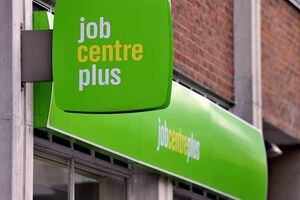Unemployment rises but fewer in Shropshire claiming benefits
The number of people out of work in the West Midlands rose by only 1,000 in the three months to the end of May.

Latest Office for national Statistics figures show there were 143,000 out of work for the region – a rate of 4.9 per cent of the working population with 2.8 million in employment (74.9 per cent) – a fall of 6,000 on the previous quarter.
Nationally unemployment was 1.34m (3.9 per cent) with 32.94m in work (76.4 per cent).
Numbers claiming unemployment benefits including Universal Credit fell across the West Midlands last month by 2,680 to 262,350 (7.2 per cent of the working population).
For Shropshire the total was down by 340 to 8,810 (4.6 per cent) with Telford and Wrekin seeing 125 fewer claimants at 7.010 (6.3 per cent).
In Powys the claimant total fell by 165 to 3,485 (4.6 per cent).
Nationally claimant numbers were 2.62m (6.3 per cent).
The increase in unemployment was not as big as feared because of the large number of firms that had employees on the Government-backed furlough scheme.
More Covid-19 coverage:
Figures are likely to rise over coming months as the tide of redundancies across the retail sector hits.
More than 24,000 jobs have already been lost at high street retailers in administration in the first half of 2020 after the coronavirus lockdown sparked the collapse of a raft of well-known brands.
The Centre for Retail Research has warned that this is just the tip of the iceberg.
It say more than 30,000 jobs are still at risk of being permanently axed at retailers, with many still expected to permanently close some stores.
Many major high street brands, such as Laura Ashley, Debenhams, Monsoon Accessorize, Cath Kidston, Quiz and Victoria's Secret have all entered insolvency after being forced to shut their doors in March.
Harrods, Arcadia and John Lewis have also confirmed plans to cut jobs in a bid to secure their financial futures.
Minister for Employment Mims Davies said: "We know that people are worried about their livelihoods which is why we've put in place a Plan For Jobs.
"A crucial part of that is doubling the number of frontline work coaches so that every jobseeker gets support to find work as well as launching the Kickstart scheme to create hundreds of thousands of new, fully subsidised jobs for young people across the country."
Payroll
Jonathan Athow, deputy national statistician at the ONS), said: "As the pandemic took hold, the labour market weakened markedly, but that rate of decline slowed into June, though this is before recent reports of job losses.
"There are now almost two-thirds of a million fewer employees on the payroll than before the lockdown, according to the latest tax data.
"The Labour Force Survey is showing only a small fall in employment, but shows a large number of people who report working no hours and getting no pay."
He added: "There are now far more out-of-work people who are not looking for a job than before the pandemic."
Shadow chancellor Anneliese Dodds has said the latest unemployment figures from the ONS underlined the need for continuing Government support to those sectors particularly hard hit by the coronavirus crisis.
"Clearly there are some trends that can be discerned - the number of hours worked going down and the amount of economic inactivity going up as well.
"I think this is a very concerning time because we could see that being worsened by changes going ahead with the furlough scheme.
"We do think that for particularly badly affected sectors there does need to be continuing support, otherwise we will see extra waves of people potentially moving into unemployment or economic inactivity," she said.
The Confederation of British Industry's director for people and skills Matthew Percival said: “These figures show serious difficulties for hundreds of thousands of people, but unfortunately this is still only the beginning of the impact on the labour market. Flattening the unemployment curve will remain paramount.
“The Government’s support measures have helped to keep many people in work and businesses running. As some begin to wind down in the coming months there may yet be a need for more direct support, including grants and extending business rates relief. Prevention is always better than cure.
“It will be vital for business and government to work together to successfully deliver the Kickstart Scheme simply and quickly in the autumn to support young people. There can be no time lost in preparing people for the most difficult jobs market in decades.”





